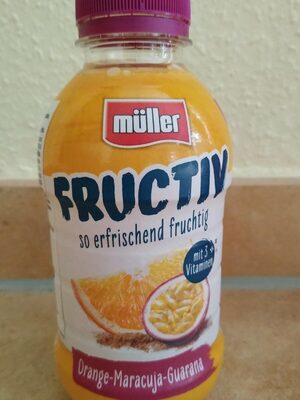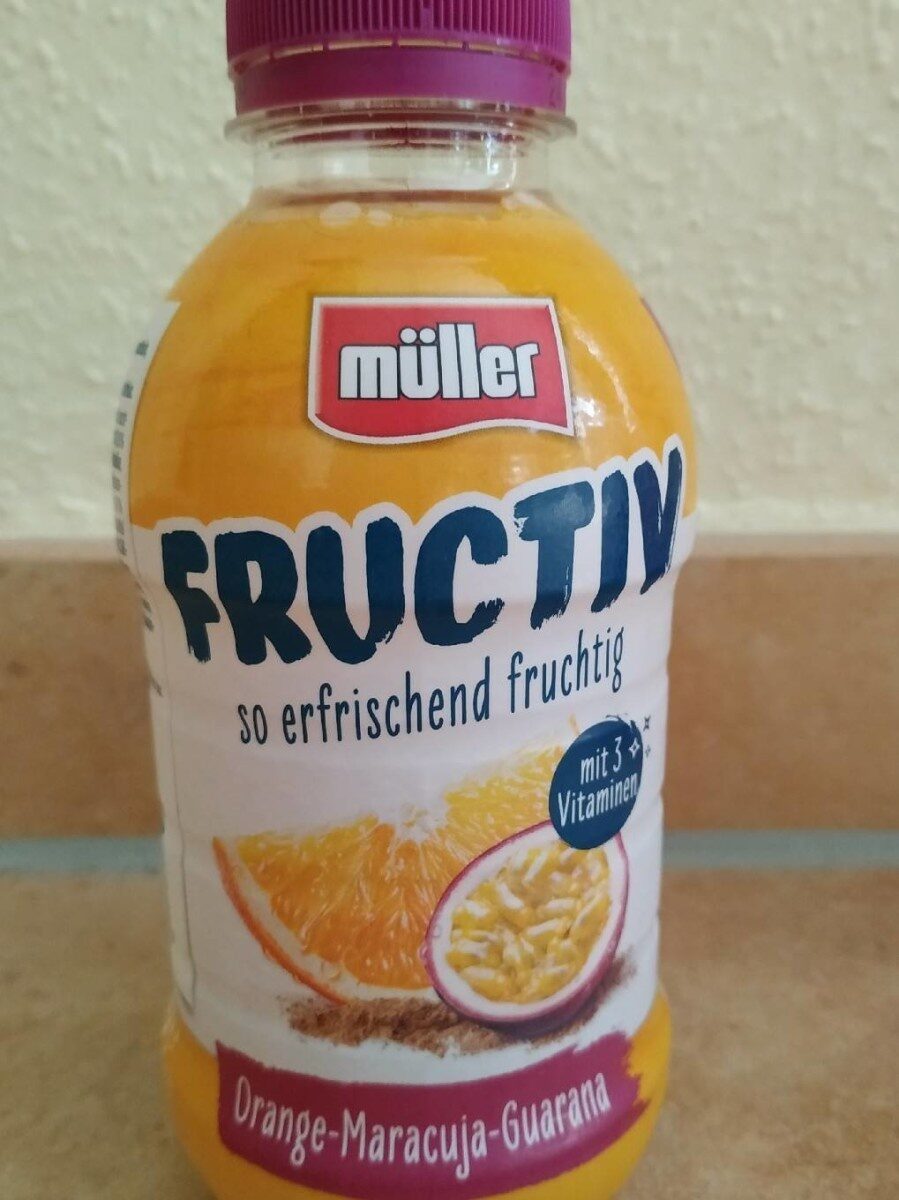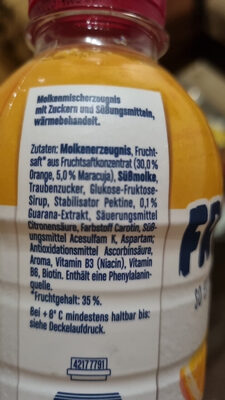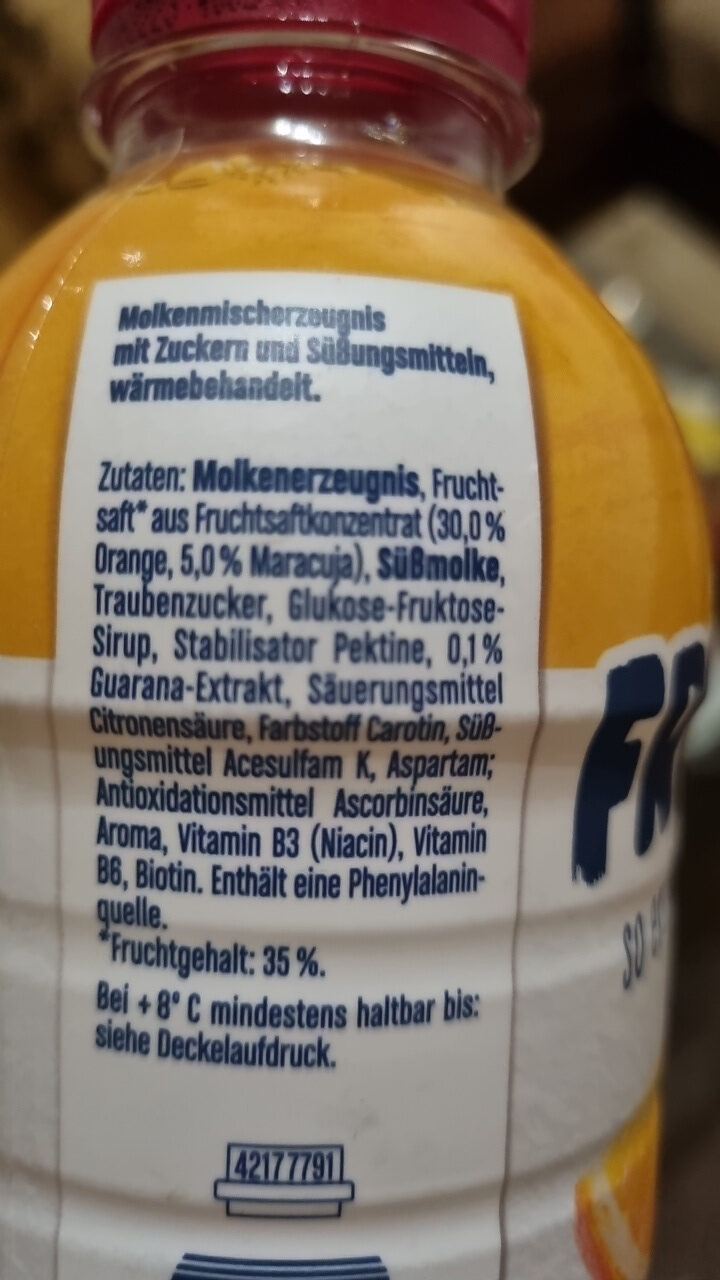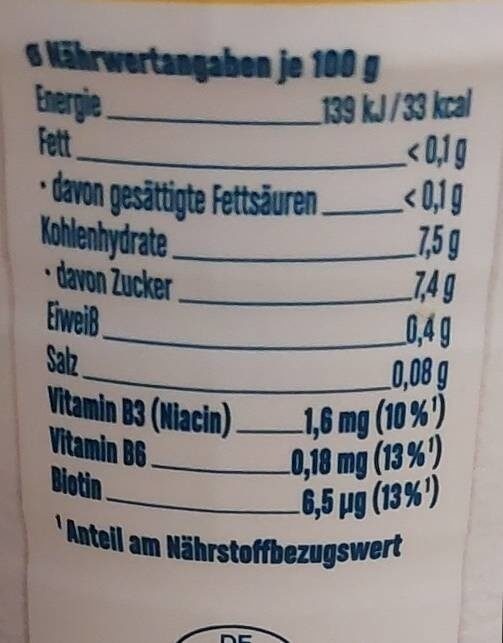Müller - 440ml
This product page is not complete. You can help to complete it by editing it and adding more data from the photos we have, or by taking more photos using the app for Android or iPhone/iPad. Thank you!
×
Barcode: 42177791
Quantity: 440ml
Categories: Beverages
Traceability code: DE SN-016 EG
Countries where sold: Germany
Matching with your preferences
Environment
Packaging
Transportation
Report a problem
Data sources
Product added on by kiliweb
Last edit of product page on by insectproductadd.
Product page also edited by prepperapp, roboto-app, yuka.sY2b0xO6T85zoF3NwEKvln1tfob5sy2YJj75hm2Q1vyqKMDCZ_9S-LjlYqs, yuka.sY2b0xO6T85zoF3NwEKvln5eecP8vzL6KibivVOy_8nWPIXjW4BY0rD1Nas.
If the data is incomplete or incorrect, you can complete or correct it by editing this page.
